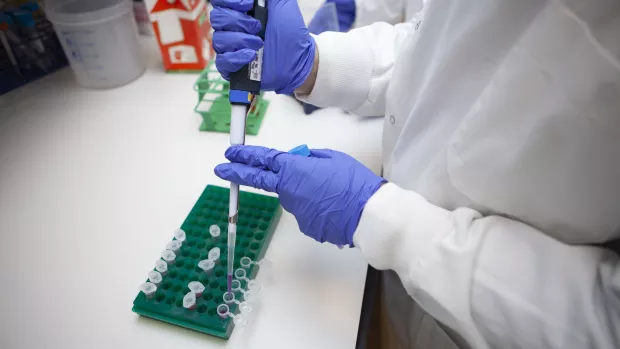
NICE says initial no to ocrelizumab for primary progressive MS
Today the National Institute for Health and Care Excellence (NICE) provisionally decided not to recommend ocrelizumab for people with primary progressive MS on the NHS.
This is the first stage of their review process into this new MS treatment.
Ocrelizumab (drug name Ocrevus) is an intravenous infusion taken every six months. It was licensed to treat both people with relapsing and early primary progressive MS by the European Medicines Agency (EMA) in January this year. And has just been approved on the NHS for people with relapsing MS.
What's NICE's decision based on?
NICE have acknowleged the importance of ocrelizumab as the first licensed treatment for primary progressive MS, but still refused to approve it for the NHS.
They say it's because the evidence submitted by the pharmaceutical company Roche doesn't meet their cost effectiveness criteria.
Where would NICE's decision apply?
This provisional decision applies to England and Wales only.
Update as of 11am on 29 June: We've just heard the separate submission for ocrelizumab for primary progressive MS in Scotland has been withdrawn. We're working to understand the full reasons for this and will continue working with the Scottish Medicines Consortium (SMC) and others to see a submission in the future. Unfortunately at this stage we can't estimate when a new submission might come forward.
Separately we'll be watching the progress within Northern Ireland, which usually follows NICE decisions.
What next for ocrelizumab and progressive MS?
This is not the final decision, NICE will consider further evidence. They're still in talks with pharmaceutical company, Roche, and NHS England.
We’ll continue to speak up for people with primary progressive MS at every opportunity. And we’ll use the feedback you gave us earlier this year to tell NICE why it’s so important ocrelizumab is made available to everyone it could help.
Not the end of the road
Our Director of External Relations, Genevieve Edwards, says:
“This initial decision is deeply disappointing. We’ve been waiting a lifetime for an effective treatment for primary progressive MS. It's simply unacceptable to deny people a treatment they urgently need. This form of MS can be painful and often exhausting, so people are understandably desperate for a proven medicine that can help.
“Thankfully this isn’t the end of the road. We urge both sides to come together and find a solution that allows everyone who could benefit access to ocrelizumab as soon as possible.”
New trial for people with primary progressive MS announced
Roche have also announced a new trial to test ocrelizumab’s effectiveness for people with primary progressive MS who use a wheelchair.
This trial will provide better data on ocrelizumab's effectiveness on arm function. But it won't directly affect NICE’s current evaluation of the drug (which is based on existing evidence).




